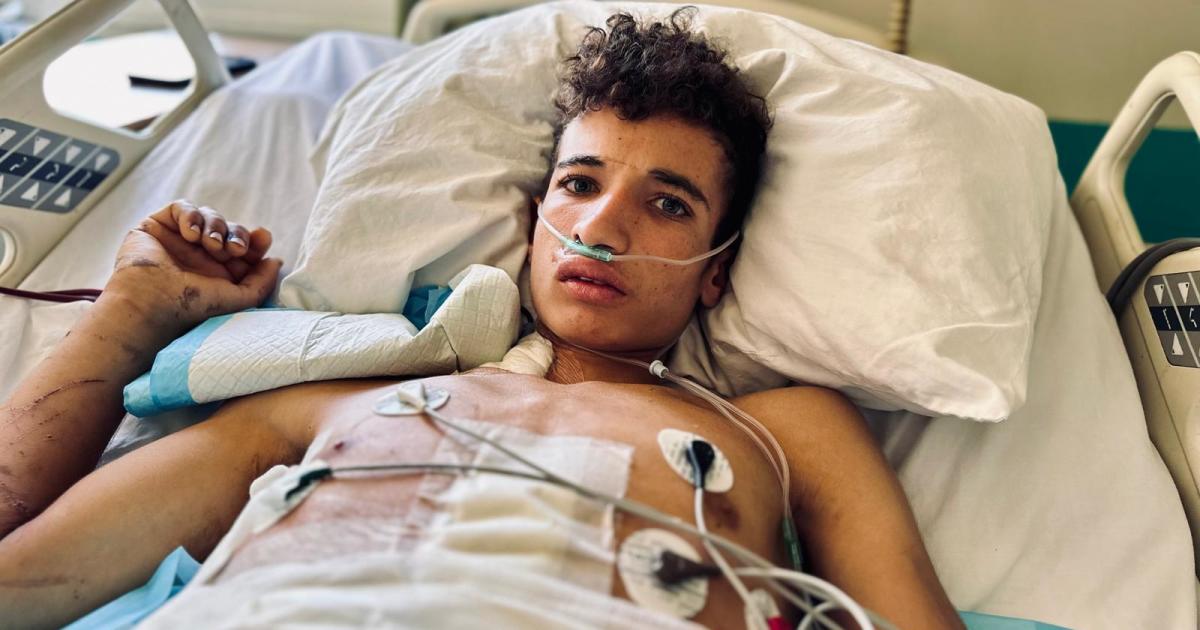The ongoing conflict between Israel and Hezbollah in Lebanon, occurring alongside the devastating war in Gaza, has resulted in widespread suffering and destruction. The intensity of the fighting, marked by relentless airstrikes and rocket fire, has created a humanitarian crisis, leaving countless civilians injured and displaced. Hospitals are overwhelmed, struggling to cope with the influx of casualties, many of them children who have suffered horrific injuries. The lack of warning before many of the airstrikes adds to the terror and devastation inflicted upon the Lebanese population, leaving families shattered and communities in ruins. The international community is increasingly concerned about the escalating violence and the dire humanitarian situation unfolding in both Gaza and Lebanon.
The Humanitarian Crisis in Lebanon
The scale of the humanitarian crisis in Lebanon is staggering. Hospitals are overflowing with casualties, lacking essential medical supplies and struggling to provide adequate care to the wounded. The number of casualties, predominantly civilians, is continuously rising. Many of those injured have suffered severe and life-changing wounds. This puts a massive strain on the country’s already fragile healthcare system, which has been battling multiple challenges before the onset of current conflict.
Overwhelmed Healthcare System
Lebanese hospitals, already burdened by years of economic crisis, are facing an unprecedented surge in patients. Many facilities lack adequate resources, including medical staff, essential medicines, and equipment, making it increasingly difficult to treat those in need. The lack of infrastructure severely impacts recovery rate. There are reports of shortages of blood and essential supplies needed for operations and trauma care.
Civilian Casualties
The vast majority of casualties are civilians, including a high number of women and children, who are disproportionately affected by the conflict. Many have been injured or killed in their homes by airstrikes with little to no warning, underscoring the indiscriminate nature of the violence. The psychological impact on the civilian population, especially children who witness or experience violence, is severe and will likely have lasting consequences. This includes the loss of life, destruction of homes and communities, the ongoing psychological traumas inflicted, long term displacement from homes and the massive ongoing economic damage. It is a collective trauma.
The Impact of Airstrikes
The indiscriminate nature of Israeli airstrikes has exacerbated the humanitarian crisis. Many strikes target densely populated areas, resulting in high civilian casualties and widespread destruction of infrastructure. Hospitals and other critical facilities have also become targets. Many strikes inflict lasting injuries which may require extensive and long term recovery and specialist care.
Targeting of Civilian Infrastructure
Several accounts recount hospitals and other civilian infrastructure coming under direct attack, making it dangerous for civilians to seek emergency care. This is compounded by a shortage of supplies in what little infrastructure exists that can support healthcare services. This hampers rescue efforts, and creates a compounding crisis that continues to cause lasting injury, displacement and even death.
Lack of Warning
The lack of prior warning for many of the airstrikes further complicates the humanitarian situation, preventing civilians from taking protective measures and exacerbating civilian casualties. This is a violation of international humanitarian law. The lack of warning and the indiscriminate nature of the strikes only compounds the trauma of injury and damage and significantly heightens the terror already suffered by the general civilian population.
International Response and Humanitarian Aid
The international community is responding to the crisis by providing humanitarian aid, including emergency medical supplies, food, water and shelter to Lebanon. Organizations are also helping displaced families find shelter. But the magnitude of the crisis means additional support is direly needed.
Challenges in Delivering Aid
Despite international efforts, significant challenges remain in effectively delivering aid due to damaged infrastructure and ongoing security concerns in many regions. Furthermore, many individuals impacted are unable to easily leave these dangerous areas for other areas due to the active war, damaged roadways, loss of possessions and resources that prevent safe transit to relief locations.
Call for Urgent Action
Increased international efforts and humanitarian aid is crucial. The crisis necessitates not only immediate relief, but also long-term support for rebuilding and recovery which may take many years and sustained, collaborative and multi-national efforts.
Takeaway Points
- The conflict in Lebanon has created a severe humanitarian crisis with massive civilian casualties.
- The Lebanese healthcare system is overwhelmed, struggling to cope with the large number of injured.
- Indiscriminate airstrikes have exacerbated the situation, causing widespread damage and loss of life.
- The international community must increase humanitarian aid to alleviate the suffering and facilitate long-term recovery in Lebanon.




